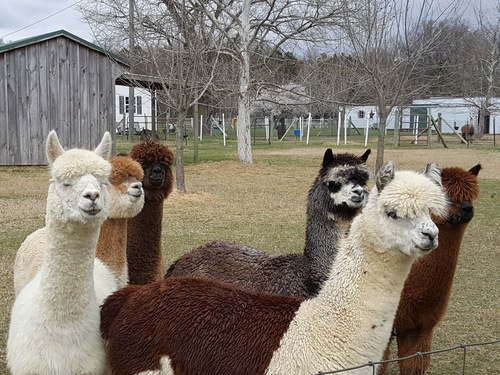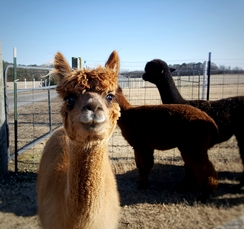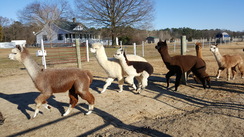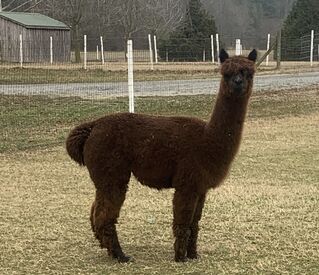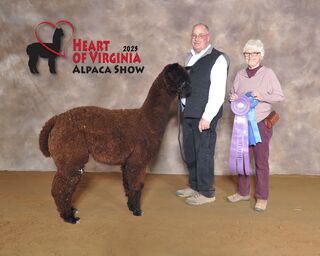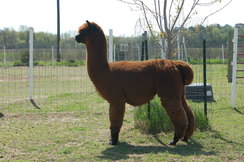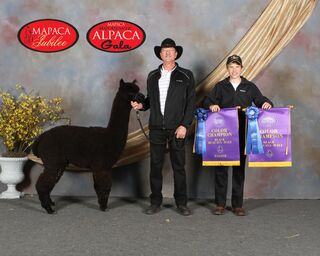Frequently Asked Questions
Answers to Frequently Asked Questions:
What do alpacas eat?
Alpacas are first and foremost "grazers", consuming a diet of grass or hay. They also receive one to two eight ounce cups of alpaca feed per day, along with a free choice mineral supplement. Alpacas are very efficient at digestion and do not require large amounts of food, thereby reducing the cost of raising them. Fresh water is required and should always be available.
What are they used for?
Alpacas are raised for their high quality fleece. The fleece is processed into yarn, can be felted, or made into fabric & can then be used to make premium quality garments. Alpaca is warm, soft, lightweight, &very comfortable to wear.
How long do these animals live?
Alpacas generally live long, productive lives, typically around 18-20 years. A female alpaca may be bred between 18 months to 2 years of age & can produce one offspring per year into her teens depending on her condition. Males start their breeding careers at between 2-3 years of age & are capable of breeding every day.
Where do alpacas come from?
Alpacas originated in the South American countries of Peru, Chile, & Bolivia where they have been domesticated for thousands of years starting with the Incan civilizations. They have always been raised for their wonderful, soft fiber .Their wild relative is the Vicuna which still roams in these countries. Their closest domestic relative is the llama which was raised as a pack animal and some for fiber.
What kind of shelter & fencing is required?
A) Alpacas need minimal shelter & prefer to be outside except in the worst weather. A good three sided run in shed, the type used for horses is sufficient. A fan should be included for the hot summer months. A barn is nice, but not a necessity.
B) Fencing is more intended to keep out predators (mostly dogs in this area) than to contain alpacas as they rarely challenge fences .Five foot high woven wire horse fence is the preferred choice. Alpacas do not require large acreage, & are the perfect choice for small farms.
What kind of health care is needed?
Alpacas are generally very healthy, hardy animals requiring little in the way of medical care. Monthly vaccination is needed to prevent a parasite called Menegial worm which is carried by deer. A simple shot is given & does not require the services of a veterinarian. At this time the animal should also be weighed to determine the dosage of medication to be given as well as to monitor any changes in your animal’s weight. This is also the time to trim your animals toe nails, another procedure easily performed by you.
Are they friendly?
Alpaca are not friendly in the way a dog is friendly. They are more on the timid side and a little bit flighty. They are very curious animals and like to investigate on their own terms. They don’t like quick movements and will usually jump away if you try to touch their head. Touching them on the neck is less intimidating to them, and they are also less intimidated by children. Many children work with them and train them for performance classes (such as 4-H showing and obstacle courses). They are harmless and most always have very gentle temperaments.
See also:Interesting Facts about Alpaca Fiber
Friday, August 3, 2018

